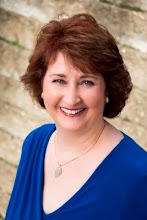I would like to talk about the famous, or infamous, POV.
For anyone who isn't familiar with it, POV stands for Point Of View. If you're within someone's POV, you can only see, hear, smell, taste, or feel what that someone sees, hears, smells, tastes, or feels, and you're only privy to that someone's inner thoughts.
What does it mean for a writer? Well, it means every time you write a scene, you need to choose a POV. Will I write the scene in my hero's or my heroine's POV?
Let's say I choose my heroine's POV, let's say a scent draft into the kitchen, let's say it's lilac, and let's say my heroine has never smelled lilac in her life, so...
These are 3 examples of how the scene could go down:
1- If she's alone in the kitchen, she cannot say it's lilac, because she doesn't know what it smells like. She can say she smells something sweet, something floral, a strong fragrance, a delightful fragrance, but the reader will never know it's lilac.
2- If she isn't alone in the kitchen, she can ask whoever is with her (let's say it's her boyfriend) if he smells something. If her boyfriend knows what lilacs smell like, he can say it's lilac and he can provide as much information as the reader needs to know.
3- She's with her boyfriend in the kitchen, but she's nose blind to the scent wafting in. (Remember, we're in her POV, we can know what she thinks but not what her boyfriend smells or thinks unless he mentions it.) If her boyfriend smells it and knows it, he may say something about it, or he may dismiss the scent as unimportant and not say anything, in which case the reader will never know about the lilac scent drafting in.
(I picked lilacs because I have lilacs all around my house and for a week or two in the spring, it smells amazing... I'm digressing here.)
Every scene conveys bits of information that come together to form a story. If that lilac scent is an important bit of information, then the writer has two choices:
1- Stay in her POV, but develop the boyfriend's character in such a way that he's the type of guy who notices different fragrances and likes to comment about them, or...
2- Switch the scene to his POV, that way he can notice the smell (we're in his POV, so we have access to all his senses and are privy to his inner thoughts). He can simply walk in the kitchen where the scent of lilacs lingering in the air reminds him of his grandmother's cottage. No dialogue needed.
A long time ago, when I started writing romance novels, there were all those written and unwritten romance rules about POVs that circulated among different publishers.
- Only two POVs in the story.
- Each scene had to be written in either the hero's POV or the heroine's POV.
- Love scene should be written in the girl's POV, not the guy's. (Don't readers want to know what's going on in the guy's head when... you know)
- Happy endings, meaning hero & heroine end up together, not merrily go their separate ways.
- Some publishers even had POV ratios. 60% her, 40% him.
I wrote for many publishers (not all of them are still in business) and I had many wonderful editors. It happened that at the beginning of my writing career, I had an editor who was a stickler to all romance rules. I had to rewrite many scenes and switch POV even though the information I needed to convey was now in the wrong character's head. And I couldn't get away with writing even one short scene in the antagonist's POV.
I'm not only a writer, but I'm also an avid reader. I like to know how the vilain thinks.
Over the years I added more and more mystery and suspense to my stories. I went from writing romance, to writing romantic suspense, to writing murder mysteries with a dash of romance. Suddenly, these POV rules didn't apply as much as they used to.
I was reading a mystery novel written by a well-known author last month. I very much enjoyed the story but I wouldn't describe the ending as happy in any sense of the word. Now, let me talk about the POVs in his story. (I had just finished a round of edits when I read it so it might explain why they struck me so much). The author didn't have just 2, or 3, or 4 different POVs in the story, he had many more. Not only that, but he often switched POVs within the same scene.
None of the POV rules appeared to apply to his story--or to any other genres but romance.
So, what's my current take on POVs?
- Most of my scenes are in my hero's or heroine's POVs, but I choose the POV that conveys the information the most natural and seamless way possible.
- If there are love scenes, they can be in any POV. It's whatever rocks my boat when I write it.
- I try not to switch POV within a scene, but I write some scenes in other characters' POVs. My vilains have voices, very loud and disturbing voices.- And I still like a satisfying ending. I want my readers to enjoy the ride and disembark happy--not curse me or throw the book back at me.
Next month I'll give you a taste of Red in the Snow. I know I said that last month, but my excerpt isn't quite ready yet. Besides, it's too hot outside to mention the word snow.
Stay safe! Enjoy the rest of your summer! Hugs!


.jpg)




































